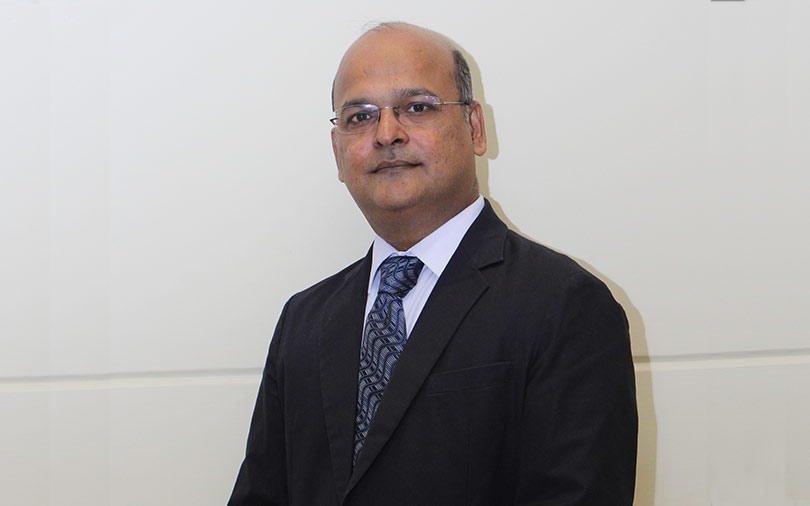
Unicorn India Ventures' Anil Joshi on why fintech and B2B startups are promising


 Mumbai-based venture capital investor Unicorn India Ventures is currently on the road to raise a $56-million (Rs 400 crore) second fund focused on technology startups. The firm's first fund, raised with a target corpus of $23 million (Rs 150 crore) in 2015, has invested in 18 startups across segments such as fintech, software-as-a-service (SaaS), cybersecurity and enterprise technology. Some of the companies in its portfolio include VLCC, VanityCube, Sequretek, Pharmarack, SmartCoin, Open, Boxx.ai and Inntot Technologies to name a few.
Mumbai-based venture capital investor Unicorn India Ventures is currently on the road to raise a $56-million (Rs 400 crore) second fund focused on technology startups. The firm's first fund, raised with a target corpus of $23 million (Rs 150 crore) in 2015, has invested in 18 startups across segments such as fintech, software-as-a-service (SaaS), cybersecurity and enterprise technology. Some of the companies in its portfolio include VLCC, VanityCube, Sequretek, Pharmarack, SmartCoin, Open, Boxx.ai and Inntot Technologies to name a few.
In a telephonic conversation with TechCircle, managing partner Anil Joshi spoke about how the firm's investing strategy will change with the second fund, its interest in business-to-business startups and how it is building out a portfolio of cross-border technology investments. Edited excerpts:
How is the Fund I portfolio shaping up?
So far, we have invested in 17 companies out of which only one, a consumer internet company, has failed. The rest are in different stages of growth. In three years, we haven't seen any failures, which has surprised me to some extent. We were lucky to take early bets on the fintech sector and that part of the portfolio is performing well. We have also invested in B2B enterprise startups. As a small fund, we cannot support consumer technology companies. They require a lot of hand-holding till they find a deep-pocketed investor. We took a cautious call and made B2B enterprise bets, which has played out well for us.

What are some of the challenges you face investing in technology startups?
We have invested in companies founded by first-generation entrepreneurs or fresh college graduates. Founders are good at what they do but lack experience when building a business. The biggest challenge I’ve seen is the inability to complete the business cycle. We are still half a decade away from seeing second- or third-time entrepreneurs getting heavily funded by investors in India.
Talent is another challenge as technology is changing very fast. AI (artificial intelligence) or blockchain related businesses will soon dominate but resource crunch will always prevail. On one hand, machines make it easier for entrepreneurs but on the other hand, government policies hold back startups.

Tell us more about the traction that some of your portfolio companies are seeing.
We invested in a cybersecurity startup at a time when it was doing business worth $1 million. Digitisation has led to increasing awareness of cybersecurity. The company has more than doubled its growth in just one year. In the current financial year, it is already doing business worth $4 million.
In fintech, we invested in a micro lending company at the concept stage where it was experimenting with its technology. After 14 to 15 months, the company now lends above Rs 10 crore every month. We have also invested in a SaaS company which helps in supply chain and order management in the pharmaceuticals industry. We are surprised by its growth because Indian retail is very fragmented but technology is helping resolve that pain point.

In healthcare, we invested in a diagnostics company called Neuro Equilibrium at a time when the founder was doing equipment trials. But in a span of two years, the promoter has scaled the firm up to more than 50 hospitals with customers like Apollo, Fortis, etc.
How is your investment strategy going to change in Fund II?
In Fund I, we focused mostly on pre-Series A and seed stage investments. The next fund would be a mix of seed and growth stage funding. We will have a larger corpus to deploy. We will continue to invest at the seed and Series A stages, but we will also make some Series B investments.

You also have a cross-border fund in partnership with UK-based Ascension Ventures. How will that strategy play out?
The Unicorn Ascension EIS Fund will invest in UK-based startups building products and services relevant to the Indian market. The fund aims to raise up to £5 million per year. We have already made one investment while another is in the process of closing.
We equally see opportunities for Indian companies to explore markets outside the country. From the cross-border fund, we expect to invest in five to six early-stage companies in the first year while targeting 30-40 investments in five years.

What will be the dominant technology investment themes for investors in the next 8-12 months?
People have started consuming digital services on their cell phones, and more interestingly, they now make payments on their mobiles. This has opened up many business opportunities, especially for fintech companies, in the micro lending or cybersecurity spaces, which are leveraging artificial intelligence and machine learning solutions.
Investors always had faith in these technologies but making payments through digital platforms was missing. Earlier, debit and credit cards usage was quite low. After demonetisation, we’ve seen an increase in the number of mobile wallets. Today, out of a pool of ten investments, you will see fintech or financial services companies.

What’s the general Limited Partner view on India at the moment?
Domestic LPs began building their base in India only between 2015 and 2017. To see returns on their investments, they have to wait for at least seven to eight years. Domestic LPs still haven't experienced the benefits of investing in startups.
This interview is part of our InvestorSpeak series in which leading angel, seed or venture investors share their insights on the startup ecosystem in India.
